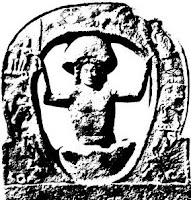Matthew 22:37 “’Teacher, which commandment in the law is the greatest?’ He [Jesus] said to him, ‘Love the Lord your God with all your heart, with all your soul, and with all your mind. This is the greatest and most important commandment.’”
Are Christians equipping themselves to love God with all of their mind? Presently, I see resurgence in an interest in apologetics. Yet I fear an intellectual resurgence may be relatively short-lived in a materialistic, technology-saturated world. Instead, I’d like to see a turning away from the media-infested thought lives we live and see a transition, rather than resurgence, to a Christian faith that encompasses reverence and awe for the mind God has given us. Our mind must be fed more than easy “milk” in order to grow properly.
Don’t get me wrong here…I’m not against the use of technology or media at all. I am against over dosage on “mind-trash” available through these mediums that can master the thought-life of the believer’s mind. Remember what you daily feed on affects how you perceive yourself, others, and God – just like what you eat affects you daily as well. If all you eat is trash, what will happen to you? If all you drink is milk, how will you grow? There is a great reminder by Paul concerning “mind-trash” when he says to take every thought captive and make it obedient to Christ in 2 Corinthians 10:5. Peter also tells us to seek out knowledge of the Lord in 1 Peter 2:5, “For this very reason, make every effort to supplement your faith with goodness, goodness with knowledge” and further states in verse 8 – 9: “For if these qualities are yours and are increasing, they will keep you from being useless or unfruitful in the knowledge of our Lord Jesus Christ. The person who lacks these things is blind and shortsighted, and has forgotten the cleansing from his past sins.”
Plus, there is strict admonition against ignorance concerning the knowledge of the Lord in the Old Testament: Hosea 4:1, 6 “Hear the word of the Lord, people of Israel, for the Lord has a case against the inhabitants of the land: There is no truth, no faithful love, and no knowledge of God in the land!” “My people are destroyed for lack of knowledge. Because you have rejected knowledge.”
Believers must study to gain knowledge of God. No way around it. The previous verses are not merely addressed to ministers, professors, or seminary students. Rather, these verses were addressed to the Church (Old Testament to the children of Israel). These believers were people with kids, jobs, family commitments, stress, relationship problems, extenuating circumstances, emergencies, horrible pasts, current atrocities, illnesses, diseases, etc. No matter what our circumstances, the verses remain: we must study to gain knowledge of the God we profess.
It feels somewhat simplistic and obvious to suggest that the first place to start is to read the Word of God. But take a moment to assess how you view the Word of God. Are you utilizing the Word like it is the best information on the most important matters in your life? I get caught up with reading a lot of material about the Bible and/or Christianity, but that is no substitute for the actual Word of God. It is also extremely helpful to have a good Bible commentary ready to read with the Word. Different commentaries serve different purposes, but generally they give the context, timeframe, historical background, cultural setting, and meaning of the Greek/Hebrew words for the verses. I highly suggest that all Christian homes have a least one set of commentaries (either book or electronic copies).
God desires us to love him with the mental faculties he created. In fact, Matthew 22:37 implies that our love of God is incomplete without utilizing our mind’s abilities to reason and comprehend. This will not happen if all we expose our minds to is “easy-believism” or the mountains of “mind-trash” available for our entertainment.
MJ
Commentary Suggestions:
The New International Commentary on the New Testament, editor Gordon D. Fee
The New International Commentary on the Old Testament, editor Robert L. Hubbard
Tyndale New Testament Commentary Series
Some commentary authors I enjoy: R.T. France, F.F. Bruce, Douglas Moo, Wayne Grudem
Commentaries can be purchased by individual books (ie. Romans, Galatians) or in entire sets (which are pricey!)
More Scripture:
Luke 10:27 He [Jesus] answered: ‘Love the Lord your God with all your heart, with all your soul, with all your strength, and with all your mind; and your neighbor as yourself.’
Colossians 1:9-10 “We are asking that you may be filled with the knowledge of His will in all wisdom and spiritual understanding, so that you may walk worthy of the Lord, fully pleasing to Him, bearing fruit in every good work and growing in the knowledge of God.
Colossians 3:16 “Let the message about the Messiah dwell richly among you, teaching and admonishing one another in all wisdom, and singing psalms, hymns, and spiritual songs, with gratitude in your hearts to God.”
James 1:25 “But the one who looks intently into the perfect law of freedom and perseveres in it, and is not a forgetful hearer but a doer who acts—this person will be blessed in what he does.
Hosea 6:6 “For I desire steadfast love and not sacrifice, the knowledge of God rather than burnt offerings.”
Isaiah 5:13 “Therefore My people go into exile because they lack knowledge.”
© Mary Jo Sharp 2008










